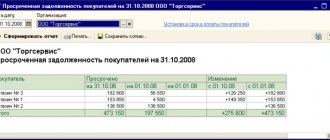Legal regulation of traveling nature of work
The Labor Code of the Russian Federation states (Article 57) that when drawing up an employment contract, it is necessary to indicate what type of labor duties are envisaged for the new employee. In the situation under consideration, it should be noted that his activity is traveling.
The Labor Code makes a distinction between this type of work and business trips ordered by the director. Article 166 mentions this.
A number of categories of employees may qualify for compensation for expenses incurred by them (Article 168.1). These include employees who:
- are constantly on the move;
- perform work that is considered traveling;
- persons engaged in field work;
- forwarders.
This article states that a company whose employees perform traveling work duties is obliged to record a list of professions or positions related to them in the internal documents of the enterprise.
It is important to note that the legislation does not clearly define what is and is not traveling duties. Therefore, the final decision on this issue is left to the discretion of the company's management. In practice, this type includes those who are constantly on the move.
Nuances
Labor relations between the employer and employees whose performance of official duties involve continuous travel are regulated by Articles 168 of the Labor Code of the Russian Federation. These norms are intended to set the basic form of regulation of the work process. Internal design and other nuances are left to the choice of the employer and employee. Here, the only important condition remains the need to determine the nature of the work in the internal document flow.
The Labor Code of the Russian Federation does not contain a large number of contradictions and ambiguous provisions, such as the Tax Code. On the contrary, it takes into account all the nuances of the labor process and meets the requirements of our time. In this regard, no fundamental changes are planned in it in 2018. One rule also remains unchanged - execution of documents within the framework of legislation is the key to the success and good reputation of an enterprise before the state.
Comments Showing 0 of 0
Professions requiring traveling nature of work
The legislation does not establish a list of professions for which traveling orders apply. Article 168.1 of the Labor Code indicates that at a particular enterprise such a list should be established in internal documents at the discretion of management. Thus, the final decision on whether a particular employee’s work schedule is traveling is made by the administration.
However, in practice this issue is often resolved as follows. Traveling is considered to be the activity of those persons who must be on constant travel to perform their professional duties. As an example, we can mention drivers or specialists who go to customers on call (for example, a plumber who is called by citizens to fix leaks).
Here are some more such examples:
- conductors in railway carriages;
- stewards;
- workers involved in supply;
- forwarders.
If we consider the budgetary sphere of activity, then the work of representatives of the following professions can be classified as traveling:
- emergency doctors;
- firefighters;
- rescue services;
- employees of the Ministry of Internal Affairs performing patrol duty.
Sometimes the traveling nature of the activity may be indicated not in the local regulations of the enterprise, but in departmental documents. So, for example, regarding employees working in the Ministry of Emergency Situations, this fact is enshrined in the order of the Ministry of Emergency Situations of the Russian Federation No. 3 of January 10, 2008.
Regarding drivers, this issue is resolved in the departmental order of the Ministry of Transport No. 15 of August 20, 2004, which established the Regulations regulating the work and rest regime of drivers.
Legislative norms
The need to indicate in the contract with a subordinate the conditions of work of a traveling nature is stated in Art. 57 Labor Code of the Russian Federation. Establishing the traveling nature of work as an integral part of a person’s permanent activity frees one from the need to register each fact of the trip. A similar rule is fixed in the provisions of Art. 166 of the Labor Code.
To find out whether it is appropriate to mention traveling work in the clauses of the contract, we proceed from the provisions of the Labor Code defined in Art. 168.1.
The content of the article explains when employees have the right to count on compensation for travel expenses made as part of their work duties:
- regularly on the road;
- frequent travel outside the office;
- field conditions;
- participation in expeditions.
The same article establishes the obligation to properly formalize the rules of a special work regime, with a list of positions that require frequent travel being fixed in the collective agreement and internal regulatory documents. Despite the lack of clear criteria for traveling, it is customary to define what traveling work is by the presence of distinctive features.
Difference between business trip, shift and traveling work
At first glance, these types of work responsibilities are similar, but there are important differences between them.
If the work schedule is traveling, then the employee lives at home, but performs his job duties while constantly traveling or works at separate facilities located close to home. He does not need to temporarily change his place of residence in connection with the performance of his work duties.
The rotation method assumes that an employee comes to a facility that is located far from home for some time (it can be several weeks or months). Moreover, daily trips there from home or returning back are impossible or not profitable from an economic point of view.
As a rule, we are talking about working in remote, uninhabited places. During the shift, not only direct work activity is counted, but also the time spent traveling there and back. Typically, construction workers or oil workers organize their activities according to this scheme.
Article 166 of the Labor Code of the Russian Federation states that traveling work is not a business trip. Therefore, it is necessary in practice to distinguish them from each other. The article reviewed does not indicate the criteria by which distinctions should be made. To do this, use Decree of the Government of the Russian Federation No. 749 of October 13, 2008, which considers the issue of business trips for employees.
Based on these documents, the following characteristics of this type of activity can be identified:
- Sending on a business trip is carried out on the basis of management orders. This is stated in paragraph 3 of the document under consideration. During traveling work, travel is within the scope of immediate duties and does not require special orders in each specific case.
- When traveling, an employee has a regular working day. At the same time, when sent on a business trip, the time spent on it must be confirmed by tickets and documents of accommodation. This is stated in paragraph 7 of the resolution.
- Article 166 states that if an employee is sent on a business trip, then at that time he is away from his main place of work.
From the above, we can conclude that an employee who is on the road, without having an order from a manager in each specific case, without having one specific place where he performs his job duties, has traveling work.
These types of work activities have significant differences among themselves. The distinction between the concepts of business trip, traveling work and shift work is important due to the fact that in this case there are different procedures for remuneration.
Traveling employees
Almost every organization has employees whose work takes place on the road. These trips are not business trips; at the same time, such employees are paid for travel, rental housing, daily allowance and other expenses. Moreover, reimbursement by the employer of these costs becomes possible only if labor relations with employees are properly formalized, the “traveling” list and the procedure for reimbursement of costs are approved.
The Labor Code of the Russian Federation identifies the following forms of work for employees who are not sitting at their workplaces (Part 1, Article 168.1 of the Labor Code of the Russian Federation):
- work on the go;
— work in the field;
— expeditionary work;
- traveling nature of the work.
However, the Code does not contain a definition of these works. In Part 1 of Art. 166 of the Labor Code of the Russian Federation only states that business trips of employees whose permanent work is carried out on the road or is of a traveling nature are not recognized as business trips. So let’s turn to other regulatory legal acts, where the characteristics of these works are given.
Typically, en route work refers to work performed while the vehicle is moving.
Let us give examples of work on the road, considered in the resolution of the Council of Ministers of the RSFSR dated December 12, 1978 N 579 “On approval of lists of professions, positions and categories of workers of river, road transport and highways, who are paid bonuses in connection with constant work on the road, the traveling nature of the work, as well as during official trips within the areas they serve.” We are talking here about mentor captains, pilots, passenger transport controllers, conductors, drivers who constantly work on intercity transportation, etc.
Field conditions are special conditions for the production of geological exploration and topographic-geodetic work associated with the lack of facilities for the work and life of workers and the location of production facilities outside urban settlements. This definition is given in paragraph 2 of the now defunct Regulations on the payment of field allowances.
Let's extend this definition to other industries. Field conditions are special working conditions associated with the lack of facilities for the work and life of workers and the location of production facilities outside urban settlements.
The legislator does not explain the concept of expeditionary work. We think that in this case we mean the activities of freight forwarders. Therefore, as an example, let’s consider a transport expedition.
Under a transport expedition agreement, one party (the forwarder) undertakes, for a fee and at the expense of the other party (the client-shipper or consignee), to perform or organize the performance of services specified in the expedition agreement related to the transportation of goods (Part 1 of Article 801 of the Civil Code of the Russian Federation). A forwarder is a person who performs or organizes the performance of freight forwarding services specified in a transport expedition contract (clause 4 of the Rules of transport and forwarding activities, approved by Decree of the Government of the Russian Federation of September 8, 2006 N 554).
The responsibilities of a freight forwarder for the transportation of goods include escorting the cargo to its destination, ensuring the necessary storage conditions and safety of the cargo during transportation, handing over the delivered cargo and preparing acceptance documentation. This is indicated in the Qualification Directory of Positions of Managers, Specialists and Other Employees, approved by Resolution of the Ministry of Labor of Russia dated August 21, 1998 N 37.
Based on the foregoing, we can conclude that forwarding work includes escorting cargo to its destination.
According to clause 2 of the Instruction on the organization of business trips for military personnel of the civil defense forces and employees of the State Fire Service in the Ministry of Emergency Situations (approved by order of the Ministry of Emergency Situations of Russia dated January 10, 2008 N 3), the traveling nature of the work is the implementation of regular business trips within the service territory (areas) at the possibility of daily return to the place of residence. Note that this definition also applies to work on the road.
Let us turn to the Regulations on the payment of bonuses related to the mobile and traveling nature of work in construction, approved by Resolution of the State Committee for Labor of the USSR and the Secretariat of the All-Union Central Council of Trade Unions dated 01.06.1989 N 169/10-87. The traveling nature of work is established for employees performing work at facilities located at a considerable distance from the location of the organization.
So the traveling nature of the work means regular business trips. This category includes the following workers: couriers, sales agents, postmen, etc.
As you can see, the current legislation does not have clear concepts of traveling work, work on the road, in the field, and work of an expeditionary nature. Sometimes the same work can fall under several types. For example, a driver’s job may be traveling, on the road, or of an expeditionary nature.
In principle, it is not so important to us what specific form the work belongs to. The main thing is to arrange it correctly. Moreover, representatives of the Ministry of Health and Social Development of Russia, in a letter dated September 18, 2009 N 22-2-3644, indicated that the decision on the issue of classifying this or that work as work falling under Art. 168.1 of the Labor Code of the Russian Federation, is adopted by the organization independently.
It is important not to confuse traveling work with business trips. According to Part 1 of Art. 166 of the Labor Code of the Russian Federation, a business trip is a trip by order of the employer for a certain period of time to carry out an official assignment outside the place of permanent work. However, business trips of employees whose permanent work is carried out on the road or has a traveling nature are not recognized as business trips.
Thus, one-time trips by employees have nothing to do with the traveling nature of the work. For example, trips of truck drivers that are not of a permanent nature and in each case are carried out by separate order of the employer should be considered as business trips (letter of the Ministry of Finance of Russia dated June 1, 2005 N 03-05-01-04/168).
In accordance with Part 2 of Art. 164 of the Labor Code of the Russian Federation, compensations are monetary payments established in order to reimburse employees for costs associated with the performance of their labor or other duties provided for by labor legislation.
For employees whose permanent work is carried out on the road or has a traveling nature, the employer compensates for the following related to business trips (Part 1 of Article 168.1 of the Labor Code of the Russian Federation):
— travel expenses;
- expenses for renting residential premises;
— additional expenses associated with living outside the place of permanent residence (daily allowance, field allowance);
- other expenses incurred by employees with the permission or knowledge of the employer.
Reimbursement of expenses provided for in Art. 168.1 of the Labor Code of the Russian Federation, is carried out under the following conditions (letter of the Federal Tax Service of the Russian Federation dated 06.08.2010 N ShS-37-3/8488):
1) the list of jobs, professions, positions of employees whose permanent work is of a traveling nature is established by a collective agreement, agreement or local regulation;
2) the amount and procedure for reimbursement of expenses associated with business trips of employees (specified in Article 168.1 of the Labor Code of the Russian Federation) are established by a collective agreement, agreement or local regulation or employment contract.
Please note that compensation for expenses of employees whose work is traveling in nature cannot be made on the basis of a travel certificate (letter of the Ministry of Finance of Russia dated October 25, 2007 N 03-03-06/1/735).
For your information. Officials in the letter of the Federal Tax Service of the Russian Federation dated 08/06/2010 N ШС-37-3/8488 noted that the list of expenses reimbursed to the employee on the basis of Art. 168.1 of the Labor Code of the Russian Federation is open. So, reimbursement of other expenses related to business trips made by employees with the permission or knowledge of the employer is also allowed. Meanwhile, if the costs do not depend on the nature of the work performed by the employee, they do not relate to expenses associated with business travel. In particular, food reimbursement costs should be considered as payments to the employee.
Reimbursement of expenses for employees whose permanent work is carried out on the road or has a traveling nature, as well as for employees working in the field or participating in work of an expeditionary nature:
— taken into account when determining the income tax base as part of other expenses associated with production and sales (letters of the Ministry of Finance of Russia dated May 13, 2013 N 03-04-06/16384, dated June 14, 2011 N 03-03-06/1/341 , Federal Tax Service of Russia dated 04.04.2011 N KE-4-3/5226, dated 01.04.2010 N 03-03-06/1/211);
— is not taken into account when calculating the tax base for the purpose of applying the simplified taxation system (letter of the Ministry of Finance of Russia dated December 16, 2011 N 03-11-06/2/174, Federal Tax Service of Russia dated March 14, 2011 N KE-4-3/3943);
— not subject to personal income tax (clause 3 of Article 217 of the Tax Code of the Russian Federation, letters of the Federal Tax Service of Russia dated November 10, 2011 N ED-4-3/ [email protected] , Ministry of Finance of Russia dated June 7, 2011 N 03-04-06/6-131 and dated July 19, 2010 N 03-04-06/6-154);
— not subject to insurance contributions for compulsory social insurance (subclause “and” clause 2, part 1, article 9 of the Federal Law of July 24, 2009 N 212-FZ “On insurance contributions to the Pension Fund of the Russian Federation, the Social Insurance Fund of the Russian Federation, Federal Compulsory Medical Insurance Fund”, hereinafter referred to as Law N 212-FZ, letters from the FSS of Russia dated 04/02/2010 N 02-03-16/08-526 and the Ministry of Health and Social Development of Russia dated 02/27/2010 N 406-19);
— not subject to contributions for compulsory insurance against industrial accidents and occupational diseases (paragraph 10, subparagraph 2, paragraph 1, article 20.2 of the Federal Law of July 24, 1998 N 125-FZ “On compulsory social insurance against industrial accidents and occupational diseases” ", hereinafter referred to as Law N 125-FZ; letter of the Federal Insurance Service of Russia dated November 17, 2011 N 14-03-11/08-13985).
For your information. There is also the so-called mobile nature of work. This is a type of business travel for employees whose permanent work is carried out on the road. For example, in construction, the mobile nature of work involves frequent relocation of the organization (movement of workers) or their isolation from their permanent place of residence. This follows from clause 3.12 of the Federal Industry Agreement on Construction and the Construction Materials Industry of the Russian Federation for 2011-2013 (dated 02.02.2011 N 168/11-13).
Meanwhile, judging by the wording given in paragraph. 8 hours 2 tbsp. 57 of the Labor Code of the Russian Federation, the mobile nature of work, work on the road and traveling work are different forms of work. At the same time, in Art. 168.1 does not mention mobile work. So, in order to reimburse the costs of such employees, we advise that mobile work be “renamed” to work of a traveling nature or work on the road.
Most often, the size of the bonuses depends on the “generosity” of the company’s management. True, when establishing “traveling” additional payments, employers who have not refused to join the industry agreement will also have to take into account its provisions (Articles 8, 45, 48 of the Labor Code of the Russian Federation).
These amounts increase the wages of “traveling” workers and cannot be considered as compensation. The fact is that all cases of providing compensation are prescribed in the Labor Code of the Russian Federation (letters from the Ministry of Finance of Russia dated March 26, 2012 N 03-04-06/9-76 and dated October 3, 2007 N 03-04-06-02/196).
| Agreement | Allowances/surcharges for traveling nature of work | |
| Industry tariff agreement in the electric power industry of the Russian Federation for 2013-2015. (from 04/09/2013 N 222/13-15) | At least 12.5% of the tariff component of expenses (funds) allocated for labor costs | |
| Industry tariff agreement in the housing and communal services of the Russian Federation for 2008-2010. (from 05.09.2007 N 71/08-10). Extended until 01/01/2014 (from 04/02/2010 N 145/11-14)* | ||
| Federal industry agreement on construction and the building materials industry of the Russian Federation for 2011-2013. (from 02.02.2011 N 168/11-13)* | In cases where travel during non-working hours from the location of the employer (collection point) to the place of work and back per day is at least three hours, it is recommended that the daily allowance be set at up to 20% of the monthly tariff rate (salary) without taking into account coefficients and surcharges, but not more than 50% of the daily allowance paid during business trips, and for trips lasting at least two hours - up to 15% of the monthly tariff rate (salary) without taking into account coefficients and surcharges, but not more than 40% of the daily allowance paid during business trips | |
| Federal industry agreement on road infrastructure for 2008-2010. (dated 05/21/2008 N 100/08-10). Extended for 2011-2013. (from January 14, 2011 N 162/11-13)* | If the duration of traveling work or work that takes place on the road: 12 or more days per month, then the premium is up to 20% of the monthly tariff rate, official salary; less than 12 days a month, then the premium is up to 15% of the monthly tariff rate, official salary without taking into account coefficients and additional payments. If the travel time during non-working hours from the location of the organization or from the collection point to the place of work and back per day is: at least 3 hours, a bonus is paid in the amount of up to 20% of the monthly tariff rate, official salary without taking into account coefficients and additional payments; at least 2 hours - up to 15% | |
| * Agreements under which an offer to join was received | ||
Expenses for payment of allowances for the traveling nature of work:
— taken into account when determining the income tax base as part of labor costs (clause 2 of Article 255 of the Tax Code of the Russian Federation, letter of the Ministry of Finance of Russia dated March 26, 2012 N 03-04-06/9-76);
— taken into account when calculating the tax base for the purpose of applying the simplified taxation system (subclause 6, clause 1, article 346.16 of the Tax Code of the Russian Federation);
— subject to personal income tax (clause 1 of article 210 and article 217 of the Tax Code of the Russian Federation, letter of the Ministry of Finance of Russia dated March 26, 2012 N 03-04-06/9-76);
— impose insurance contributions for compulsory social insurance (Part 1, Article 7 and Article 9 of Law No. 212-FZ);
- impose contributions for compulsory insurance against accidents at work and occupational diseases (clause 1 of article 20.1 and article 20.2 of Law N 125-FZ).
The list of jobs, professions, and positions of “traveling” workers is established by a collective agreement, agreements, and local regulations (Part 2 of Article 168.1 of the Labor Code of the Russian Federation). We recommend that traveling categories of workers be specified in the order, since making changes to a collective agreement is much more difficult.
It is important to approve the Regulations on the traveling nature of work, which will spell out the concept of traveling work, compensation payments, the procedure for making payments to the employee, etc.
1.2. The traveling nature of the work means regular business trips.
1.3. Travel work is work performed while the vehicle is moving.
1.4. The list of positions and professions of employees whose permanent work is of a traveling nature or takes place on the road is approved by the director.
1.5. The conditions determining the nature of the work (traveling, on the road) must be specified in employment contracts and job descriptions (work instructions) of the Employees.
1.6. This Regulation is mandatory for all Company Employees whose permanent work is traveling in nature or takes place on the road.
2.1. The basis for sending an Employee on a business trip is the route sheet.
2.2. Reception and issuance of route sheets is carried out by the HR department.
2.3. The day after the end of the official trip, the Employee submits the route sheet to the head of the unit, who endorses it and submits it to the HR department on the same day.
3.1. The following allowances are established for the salaries of employees:
3.1.1. for the traveling nature of work - 20%;
3.1.2. for work carried out on the road - 15%.
4.1. The employee is reimbursed for travel expenses:
4.1.1. in the amount of actual expenses confirmed by travel documents, but not higher than the cost of travel:
- by rail - in a compartment carriage of a fast branded train;
- by water transport - in the cabin of the V group of a sea vessel of regular transport lines and lines with comprehensive passenger services, in the cabin of the II category of a river vessel of all lines of communication, in the cabin of the I category of a ferry vessel;
— by air — in the economy class cabin;
— by road — in any vehicle (including taxi);
4.1.2. monthly in the amount of the cost of tickets for city public transport - to employees whose permanent work is of a traveling nature.
4.2. Travel expenses specified in paragraph 4.1.1 of these Regulations are reimbursed in the amount of the cost of travel on transport, including insurance payments for state compulsory insurance of passengers on transport, payment for services for the pre-sale of travel documents, costs for the use of bedding on trains.
4.3. The employee is reimbursed for the costs of renting residential premises upon presentation of supporting documents in the amount of actual costs, but not more than 2,500 rubles. per day. This item of expenses also covers the employee's expenses for additional services provided in hotels (with the exception of expenses for service in bars and restaurants, expenses for room service, expenses for the use of recreational and health facilities).
4.4. The employee is paid additional expenses associated with living outside the place of permanent residence (daily allowance) in the amount of 1000 rubles. in a day.
4.5. Employees are reimbursed for expenses for communication services within the limit established by order of the director, and in the presence of a memorandum from the Employee confirming the economic justification of the expenses.
4.6. The Employer reimburses expenses to the Employee only if the trips were official and corresponded to the Employee’s job function or were carried out by order of the Employee’s immediate supervisor.
5.1. Employees are required to retain all documents confirming expenses.
5.2. At least 5 working days before the start of the next month, the head of the unit draws up a work assignment describing the main areas of the employee’s work on business trips for the corresponding month.
5.3. The employee is given an advance for expenses associated with business trips, within the limits of the amounts due under the official assignment approved by the director.
5.4. Employees are required, by the 5th day of the calendar month following the reporting month, to submit an advance report to the organization’s accounting department (in Form N AO-1, approved by Resolution of the State Statistics Committee of Russia dated 01.08.2001 N 55) on the funds spent in connection with business trips. The following documents are attached to the advance report: documents on the rental of residential premises, documents on actual travel expenses and other expenses related to business trips.
5.5. Employees are required to return to the cash desk the balance of the unused advance payment issued for business trips by the 7th day of the month following the reporting month.
5.6. In case of overspending, the employer, within 3 working days from the date of approval of the advance report, compensates the employee for the amounts approved by the director of the organization.
According to para. 8 hours 2 tbsp. 57 of the Labor Code of the Russian Federation, in particular, the conditions that determine, in necessary cases, the nature of the work (travelling, on the road) are mandatory for inclusion in an employment contract. For an example of the wording of an employment contract with an employee working in a job that has a traveling nature, see Example 3.
The traveling nature of the employee’s official activities must be indicated in the employee’s job responsibilities.
Most often, as a justification for business trips, enterprises keep a travel log or employees are given traveling (route) sheets, where they mark their movements. There are often cases when employees are required to fill out reports on business trips. The organization develops all these documents independently.
Remuneration for traveling work
If an employee has a traveling schedule, then there are no fundamental features of her payment. However, in practice, constant travel is associated with additional costs, which determines the need to compensate for them in one form or another.
The obligation to do this is provided for in Article 168.1 of the Labor Code of the Russian Federation. However, neither the amount of compensation nor the procedure for its provision is established. The form of payment may be determined by the employment contract concluded with the employee, the collective agreement in force at the enterprise and other internal regulations of the enterprise. In practice, two forms of payment have emerged in the case under consideration: the establishment of a special allowance and compensation payments.
Accounting
Working time accounting is subject to Article 91 of the Labor Code of the Russian Federation, which states that the number of working hours per week cannot exceed 40. In this regard, the employer has the right to establish a 5-day working day with 2 days off, a 6-day working week with 1 day off, or a sliding one. schedule.
For those employees whose specific work goes beyond the standards, the standard working time is established on an individual basis and is fixed by internal standards, since there are no clarifications in the legislation for this category. Here it is necessary to take into account that the travel time to the place of work may also take some time. It is also important whether the employee is required to come to the office before starting work or not.
For your information
If we are talking about delivery drivers, then you should refer to the Decree of the Government of the Russian Federation of 2007 No. 877.
In practice, employers use a memo signed by the employee, which will indicate the details of organizing the traveling work process. Following this document, the number of hours worked is established.
Travel allowance
Setting an allowance for the nature of the activity is one of the forms of additional payment for employees when traveling. The law does not require this form of payment and does not provide any guidance on how such payments should be calculated. On the other hand, if the internal documents of the enterprise regulate a certain payment procedure in such cases, then they will determine the rules for the application of allowances and their amount.
There are no special incentive measures for employees performing such work duties. This is done in the general manner. In order to organize this, you need to do the following:
- In the order for the enterprise, indicate which professions are considered traveling.
- The employment contracts of the relevant employees must contain information about the nature of their activities.
- Based on these documents, the company can provide measures to stimulate the work of workers in this category.
The legislation does not contain instructions on the amount of such allowances. The administration decides this issue at its own discretion. In practice, bonuses are usually set as a percentage of the main part of the salary.
However, it may vary in size for different employees depending on the complexity and intensity of their work. This form of additional remuneration is considered part of the salary and is taxed on a general basis.
Taxes and contributions from compensation payments
The fixed additional payment is taken into account as part of the salary. It is subject to both personal income tax and insurance premiums in the general manner. It is also included in tax expenses (letter of the Ministry of Finance dated March 26, 2012 No. 03-04-06/9-76, clause 3 of Article 255 of the Tax Code of the Russian Federation).
But targeted compensation for the traveling nature of work is not subject to insurance premiums and personal income tax.
EXAMPLE
Option 1
An employee with a traveling nature of work is paid a monthly bonus of 5,000 rubles, calculated in such a way as to cover the employee’s possible expenses on work trips. This means that the amount of 5,000 rubles is subject to both contributions and personal income tax.
Option 2
An employee in traveling work is reimbursed monthly for the expenses he incurred in the process. The amount is determined based on the report and primary documents provided to them. This means that such a payment is considered compensation and is not subject to personal income tax and contributions.
The amount of compensation for travel is included in income tax expenses on the basis of the employee’s supporting documents (letter of the Ministry of Finance dated July 6, 2018 No. 03-04-05/46903).
Reimbursement of expenses according to documents
Payment of the premium in the cases under consideration is not mandatory. However, the Labor Code of the Russian Federation provides for the need to compensate for additional expenses associated with the performance of labor duties during traveling work.
Article 168.1 determines that, given the nature of the work in question, it is necessary to compensate for the following types of expenses:
- Payment for travel.
- Expenses associated with rental housing.
- Expenses associated with living away from home.
Additional types of compensation may be included in cases where the administration of the enterprise agrees with this.
It should be noted that the mandatory nature of the mentioned types of compensation occurs if this profession or position was included in the list of traveling workers and the employee’s employment agreement contains information that he is hired for such work.
Additional payments and allowances
Additional payments and allowances for traveling work in 2021 do not require special provisions in the law. All power is in the hands of the employer, and he has the right to regulate the issue of wages, fixing this with the company’s internal regulatory documents.
In practice, it occurs when traveling work is paid by the hour. In such cases, for the correctness of accrual, you should regularly make notes in the accounting schedule.
Of particular note is the reimbursement of expenses. According to Article 168.1, a list of expenses to be reimbursed by the employer is established. This is the following:
- Travel expenses, if your own transport, then additional payments for fuel and lubricants;
- Renting a home or staying in a hotel;
- Daily payments;
- Involving third parties to help for work purposes;
- Other costs related to the employee’s official duties.
It should be taken into account that such non-staff expenses as the involvement of third parties or, for example, entertainment expenses must be previously agreed with management. The exact list and procedure for compensation is reflected in the internal document flow.
In 2021, there are two types of reimbursement:
- in the form of an increase to the basic salary;
- based on the employee’s expense report, which includes all checks and receipts for expenses.
Difficulties in practice
When traveling for work, payment solves the following problems:
- Compensation for expenses incurred by the employee.
- Payment not only for regular work, but also for overtime work.
- Incentive payments related to the complexity of the work performed and increased workload.
In order to determine the amount of these amounts, it is not enough to rely on documents on actual expenses incurred. For example, if an employee goes to a client within the city limits, then it is convenient for him to get there using public transport. In this case, to pay, he can present tickets for it, which is not always reliable evidence (they may, for example, be from other routes).
Signs of a traveling character and suitable professions
Work functions are performed outside the workplace. For example, when an employee, in order to fulfill his duties, must move from place to place within one or several localities. This could be setting up equipment, installing equipment, delivery, installing windows, insurance, etc.
The place of direct work is located quite remote from the place of registration of the company.
The employee is in no way tied to a specific workplace. He performs his duties in different places. For example, courier, delivery driver, media correspondent.
The employee is constantly traveling by order of management or in accordance with the job description. For example, a traveling salesman or sales representative, an affiliate network manager, a retail outlet controller, etc.
The workplace itself often changes location. For example, this happens when building roads. Or, when a company provides services to partners directly in their offices, which are located at different addresses.
Professions in which work is of a traveling nature include the following:
- workers of all professions engaged in the construction, repair and maintenance of highways;
- couriers or delivery managers;
- manager-consultants for installation and configuration of equipment or software;
- Affiliate network managers serving and monitoring retail outlets;
- insurance and sales agents;
- service employees;
- fitters and shipping track technicians;
- traveling crew workers;
- divers;
- blasting instructors;
- car drivers, forwarders;
- media correspondents, etc.
Thus, the employee's main responsibilities must involve constant travel. Almost every company has couriers. And all companies involved in trade have managers for working with retail stores. There may also be a lot of traveling workers in companies that provide consulting, legal, insurance, accounting, information, maintenance, and IT services.
How to set daily allowances when traveling
The establishment of daily allowances when traveling is not regulated by law. Payments to such employees must be determined in such a way that not only their expenses are compensated, but also the increased workload.
Determining the appropriate amounts is the responsibility of the company's management. The rules for such employees should be set out in the internal company Regulations.
It must include the following:
- Indication of the list of professions and positions that have a traveling nature of activity.
- Rules on how to book individual trips.
- The procedure for completing a progress report.
- List of payments that will be paid to such employees. It is also necessary to indicate the rules according to which they will be calculated.
If you have such a document, payment for traveling labor will occur according to the rules and will not cause disputes.
What does labor law say?
An employee who has a traveling nature of work, in accordance with Part 1 of Art. 129, art. 149 and art. 168.1 of the Labor Code of the Russian Federation, the employer must establish additional cash payments. They are aimed at compensating employees for costs associated with the performance of their work duties.
Such payments and compensation include:
- Additional payment for travel . This bonus is compensatory in nature and is part of the salary. The additional payment can be established by a local regulatory act (for example, Regulations on the traveling nature of work), a collective agreement, an agreement or an employment contract.
- Reimbursement for business travel expenses. These may include expenses for renting accommodation, travel, as well as other expenses that the employee made with the instructions or permission of the employer. The list of reimbursable expenses is open . Also, the law does not limit the amount of compensation. The employer sets the size independently, taking into account the requirements of Part 2 of Art. 168.1 Labor Code of the Russian Federation. The only thing that is important to remember is that the compensation amounts should not be unreasonably underestimated .
Next, we will analyze these payments in more detail.
"Itinerant" worker and business trips
If a person works and constantly travels outside his enterprise, then his work is considered traveling. However, there is no precise definition of this fact in the legislation. However, there are other types of business trips - business trips.
In the latter case, work outside the organization is limited in time and is not permanent. Moreover, for each such case, a separate order from the administration is required, which must indicate the destination and purpose of the trip.
Another important feature is the mandatory issuance of a travel certificate. In this case, arrival and departure marks must be placed at the point of arrival.
How to register
When the need arises for proper paperwork and reporting, it should be taken into account that traveling activities practiced at the enterprise for specific positions should be reflected in the following documents:
- A collective agreement or an internal act of an enterprise establishing the rules for the movement of employees in the performance of duties (this can be an order or the publication of a regulation, another version of the regulations) indicating specific positions and professions. The regulatory act specifies the rules for preparing documentation reflecting reports on business trips.
- Employment contract upon hiring.
Since the titles of positions that will require frequent travel around Russia or business trips around the world may change, it is recommended to include clarifications in the regulations of the enterprise, rather than a collective agreement. Changes to the collective agreement are more difficult to negotiate.
Download Traveling nature of work in an employment contract (sample) (65.5 KiB, 306 hits)
Since there are no clear regulations for formalizing the traveling nature of work in an employment contract, a sample will help in the formulation, or they can use their own formulations, confirmed by regulations in force throughout the enterprise.
Business trips with a traveling nature of work are recorded in the time sheet as the employee’s working time, regardless of his actual location away from the office or production.
Regulations on the traveling nature of work
Since the Labor Code of the Russian Federation does not provide clear instructions for registration, organizations have to correlate their actions with the current general legislation related to the issue of travel within the framework of their main work activities.
Download the Regulations on the traveling nature of work (example) (46.5 KiB, 229 hits)
The main provisions on the registration of seconded employees can be found in RF PP No. 749, adopted in 2008 in relation to persons sent on business trips. Thus, when determining the procedure for formalizing further traveling work, one should proceed from the contents of this document.
A reference to the need for frequent travel is given in the employment contract with a specific employee, and is also contained in the internal documents of the enterprise.
If an employee has already been hired before, but the nature of his work activity does not require frequent travel, an additional agreement is signed, on the basis of which the rest of the enterprise services apply the new standards for recording working hours in the worksheet.
When issuing an internal regulatory document, it is important to ensure that all important points are contained:
- A list of positions (professions) that require frequent travel to meet the needs of the company.
- Rules for preparing documentation for such employees and mandatory reporting.
- Issues of compensation for expenses spent on travel, additional compensation in addition to those established by law (allowances, surcharges).
Insurance premiums and personal income tax are not paid on compensation
Compensation for the traveling nature of work is not subject to either insurance contributions or personal income tax on the basis of subparagraph 2 of paragraph 1 of Article 422 of the Tax Code of the Russian Federation, subparagraph 2 of paragraph 1 of Article 20.2 of the Federal Law of July 24, 1998 No. 125-FZ “On compulsory social insurance against accidents in production and occupational diseases.”
Like any other expense in tax accounting, compensation expenses must be documented.
The Russian Ministry of Finance wrote exactly the same thing in letter dated January 17, 2019 No. 03-15-05/1909. The main idea of which is that the amounts of compensation paid to employees in connection with the traveling nature of the work are not subject to insurance premiums and personal income tax, provided that such expenses are documented.
If we follow the position of the Russian Ministry of Finance, an employee’s expenses for business trips do not need to be subject to insurance premiums and personal income tax if such expenses are provided for in the company’s documents. Firstly, the condition regarding the traveling nature of the work must necessarily be provided for in a collective agreement, agreement, local regulation or employment contract. Secondly, each expense must be supported by a document.
If the company does not have the necessary local acts or the employee does not provide supporting documents, the accountant will not be able to take these expenses into account. The Federal Tax Service does not recognize these expenses and will assess additional taxes and, accordingly, fines and penalties. According to officials, which is quite logical, there are no documents confirming the expenses of employees - there is no compensatory nature of these payments.
Expenses for payment of compensation to employees whose work is traveling in nature are recognized as expenses for ordinary activities as of the date of approval of the advance report. This is provided for in paragraphs 5 and 16 of the Accounting Regulations “Expenses of the Organization” PBU 10/99, approved by Order of the Ministry of Finance of Russia dated May 6, 1999 No. 33n.
Until the employee submits an advance report and it is approved by the director, the funds issued to the employee are considered an advance. These amounts must be reflected in accounting as an employee’s receivables according to the rules of paragraphs 3 and 16 of PBU 10/99 “Organizational Expenses”.
Travel by employees whose permanent work is traveling in nature is not considered business trips. This is stated in Part 1 of Article 166 of the Labor Code of the Russian Federation. Accordingly, daily allowance standards cannot be applied to this work.







